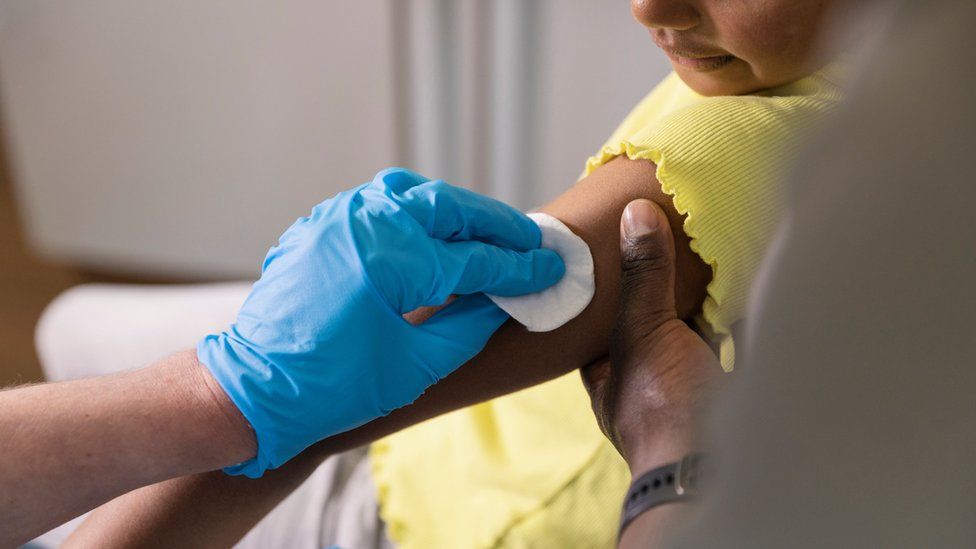ARTICLE AD BOX
 Image source, SolStock/Getty Images
Image source, SolStock/Getty Images
Existing patient record systems should be "fit for purpose", the audit office report said
By Marie-Louise Connolly
BBC News NI health correspondent
The number of pre-school vaccinations is steadily declining, the Northern Ireland Audit Office report has found.
It shows 15,000 children have not been fully immunised against measles, mumps and rubella in the past seven years.
Also, 10,200 children have not received all recommended doses of the pneumococcal conjugate vaccine (PCV).
The report recommends the Department of Health take steps to ensure existing information systems supporting vaccinations are "fit for purpose".
The Northern Ireland Audit Office (NIAO) said information systems are essential for maintaining the integrity of immunisation data and for its "seamless inclusion" within an electronic patient-record system.
These systems were announced for Northern Ireland in late 2020.
However, the NIAO study found that vaccination rates in three of five local health trusts were close to or above the World Health Organisation target.
Vaccines 'key' for population health
In the Belfast Health Trust, one in three children have not been fully immunised against PCV since 2015.
In the same trust over the past seven years, one in seven children have missed the six-in-one vaccine doses which protect against multiple diseases.
Dorinnia Carville, the NIAO's comptroller and auditor general, said vaccination against infectious disease remains one of the most "successful and cost-effective ways to help manage the health of a population".
She added: "However, as many vaccine-preventable diseases require a series of immunisations to be administered to infants and small children at pre-determined intervals, overall effectiveness is heavily reliant on consistently high levels of participation."
'Multiple factors in vaccine decline'
Other recommendations in the report include providing adequate staffing for GP practices and appropriate clinical training to maintain standards of patient safety.
It recommended using clear, fact-based and consistent positive messages around vaccinations as an important way to mitigate against uncertainty in the population, and increase rates of coverage.
Dr Alan Stout, chair of the British Medical Association (BMA)'s GP committee in Northern Ireland, said the report was important.
He told BBC Good Morning Ulster that there are pressures in primary care and that "affects the vaccination process".
Dr Stout said post-pandemic, there have been "more conversations" about vaccines, adding: "There's a hesitancy, whether that is causing a significant decline, I don't know."
The Department of Health said it agreed with the significant findings for public health highlighted in the NIAO report and accepted the recommendations made.
"We recognise the multiple factors likely contributing to declining uptake in pre-school vaccinations, including service pressures and workforce," a statement from the department read.
It said the Public Health Agency (PHA) had developed an action plan as part of this ongoing work.
The PHA said the decrease in children getting vaccinated was due to a combination of people forgetting how serious diseases such as measles or polio can be, due to their dramatic reduction because of good vaccine uptake in the past, and disruption to routine vaccination programmes caused by the Covid-19 pandemic.
The agency said it was currently undertaking work to promote the importance of the childhood immunisation programme to parents and in schools.
It said more targeted interventions with multi-disciplinary teams to improve vaccination uptake among "harder to reach" communities were also taking place.

 2 years ago
56
2 years ago
56








 English (US) ·
English (US) ·